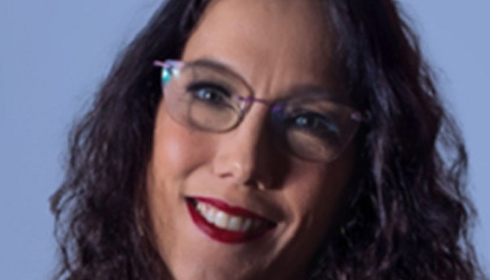
Trailblazing Neuroscientist Fights Gender Inequity in Brazilian Academia
Fluminense Federal University (UFF), located 12 miles over the bay from downtown Rio de Janeiro in Niterói, Brazil, is home to Dr. Leticia de Oliveira, a pioneer in neuroscience research and a strong advocate for gender justice in science. Dr. de Oliveira, a professor and director of the Behavioural Neurophysiology Laboratory at UFF's Biomedical Institute, not only mentors master's and doctorate students but also actively advocates gender parity in academia.
In a recent interaction with Dr. Orison Woolcott, Senior Researcher at the Ronin Institute—IGDORE, Dr. de Oliveira discussed her path, the hurdles she faces, and her unrelenting commitment to advocacy in a field historically dominated by gender bias. "Being a female in Latin American research is not easy at all because you have to fight the implicit bias against us," she told me. Despite these challenges, her work is nothing less than groundbreaking. A recent article in The Lancet Regional Health highlighted her efforts to address these concerns on a national basis, particularly through programs such as the Parent in Science movement, to which she is profoundly committed.
Dr. de Oliveira started his scientific career at a young age. "I was 12 or 13, very young, and I decided to be a scientist at that time," she tells me. Growing up in the southern Brazilian state of Rio Grande do Sul, she joined a science club in high school, which sparked her research interest, particularly the junction of neuroscience and psychology. She feels that this experience can serve as a model for other Latin American institutions looking to develop young scientists.
Her current research focuses on complicated relationships between brain and behaviour. Her research focuses on tonic immobility, a psychological response that involves paralysis in traumatic conditions. "It happens in various traumatic situations, including sexual violence," she told me. "Describing the existence of this response in humans has legal implications." Dr. de Oliveira's team has also pioneered the use of artificial intelligence to detect mental health risks in adolescents and young adults, with a focus on diseases including depression and post-traumatic stress.
Despite her accomplishments, Dr. de Oliveira faces enormous challenges, many of which arise from systematic injustices in Brazilian research. "The financial issues in Brazil are quite challenging... It is difficult to continue research with this instability in the grants," she noted, highlighting the high costs of publication fees. "The publication cost for a single manuscript can account for up to 30% of my grant... For us, the cost is prohibitively high, and publishing in reputable publications presents significant challenges. As a senior researcher, her funding options have expanded, yet early-career scientists often struggle with limited resources.
For women in particular, structural restrictions exacerbate financial challenges. One of the most significant issues is a lack of supportive policies for researchers who are also mothers. Dr. de Oliveira describes her experience of being a mother while pursuing her career: "I faced this issue for myself. "When my daughter was born, I struggled to balance my work with the time demands and lack of sleep." She joined the Parenting in Science movement to raise awareness and advocate for policy changes. "We showed that after childbirth, there is a decrease in publications for women, something that doesn't happen for fathers," the researcher explained. The initiative has sparked major debate in Latin America around maternity leave and career support for women scientists.
Dr. de Oliveira is a scientific advisor and president of the Equity, Diversity, and Inclusion Committee of the Carlos Chagas Filho Foundation for Research Support of the State of Rio de Janeiro (FAPERJ), which provides critical funding to state researchers. She believes these positions are critical to resolving gender imbalances in academia. "It's crucial to remember that science benefits from the inclusion of women and diverse perspectives, enhancing both its efficiency and quality," she pointed out. She believes that establishing an inclusive workplace is just as vital as her scientific job.
Dr. de Oliveira's advocacy reflects a larger movement in Latin America, where female scientists are trying to remove institutional impediments to their contributions. Her experiences demonstrate the tenacity and persistence required to negotiate the scientific sector as a woman in Brazil. "I plan to continue my established scientific path and work diligently to promote a more equitable, inclusive, and diverse approach to science," she informed the audience. And for others who want to follow in her footsteps, she has simple but important advice: "Cultivate a network of support and kindness."
Her tale demonstrates not only her commitment to research but also the transforming power of inclusive policies and supportive networks for women in academia. Dr. de Oliveira exemplifies how a single researcher may push the boundaries of knowledge and argue for systemic change in a hard setting.